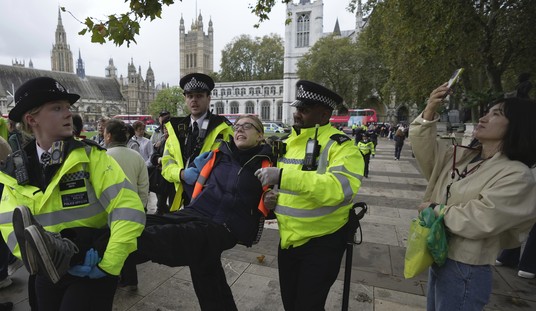The United Kingdom got downgrades from Standard & Poor’s and Fitch today along with negative outlooks for the future days after Britain voted to exit the European Union.
S&P called the Brexit “a seminal event” that “will lead to a less predictable, stable, and effective policy framework in the U.K.”
“We have reassessed our view of the U.K.’s institutional assessment and now no longer consider it a strength in our assessment of the rating.”
Britain’s long-term sovereign credit ratings were bumped down two notches, from “AAA” to “AA.”
“The downgrade also reflects the risks of a marked deterioration of external financing conditions in light of the U.K.’s extremely elevated level of gross external financing requirements,” the S&P announcement continued. “The vote for ‘remain’ in Scotland and Northern Ireland also creates wider constitutional issues for the country as a whole.”
“The negative outlook reflects the risk to economic prospects, fiscal and external performance, and the role of sterling as a reserve currency, as well as risks to the constitutional and economic integrity of the U.K. if there is another referendum on Scottish independence.”
The upcoming negotiations to extract Britain from the EU creates further uncertainty, the analysis added.
“While some believe the U.K. government can arrive at a beneficial arrangement with the EU, others take the view that the remaining EU members will have no incentive to accommodate the U.K. so as to deter other potential departures and contain the rise of their own national eurosceptic movements.”
Fitch Ratings, meanwhile, downgraded Britain’s long-term foreign and local currency issuer default ratings (IDR) as well as senior unsecured foreign and local currency bonds to “AA” from “AA+”.
The outlook, Fitch said, is negative.
“The UK vote to leave the European Union in the referendum on 23 June will have a negative impact on the UK economy, public finances and political continuity,” the international ratings agency said. “Fitch believes that uncertainty following the referendum outcome will induce an abrupt slowdown in short-term GDP growth, as businesses defer investment and consider changes to the legal and regulatory environment.”
“Medium-term growth will also likely be weaker due to less favourable terms for exports to the EU, lower immigration and a reduction in foreign direct investment. An adjustment in the value of sterling and changes in the business environment could also affect growth.”
Fitch noted that a second referendum on Scottish independence is “highly likely,” as First Minister Nicola Sturgeon said, and a “leave” vote for Scotland would further knock down Britain’s rating “as it would lead to a rise in the ratio of government debt/GDP, increase the size of the UK’s external balance sheet and potentially generate uncertainty in the banking system, for example in the event of uncertainty over Scotland’s currency arrangement.”
“The outcome of the referendum has precipitated political upheaval, including the announced resignation of the Prime Minister, contributing to heightened uncertainty over government economic policies and diminished scope for policy implementation at the current conjuncture,” Fitch said.
In a speech before the House of Commons today, Prime Minister David Cameron noted that “it is clear that markets are volatile, there are some companies considering their investments and we know this is going to be far from plain sailing.”
“However, we should take confidence from the fact that Britain is ready to confront what the future holds for us from a position of strength,” Cameron said.









Join the conversation as a VIP Member